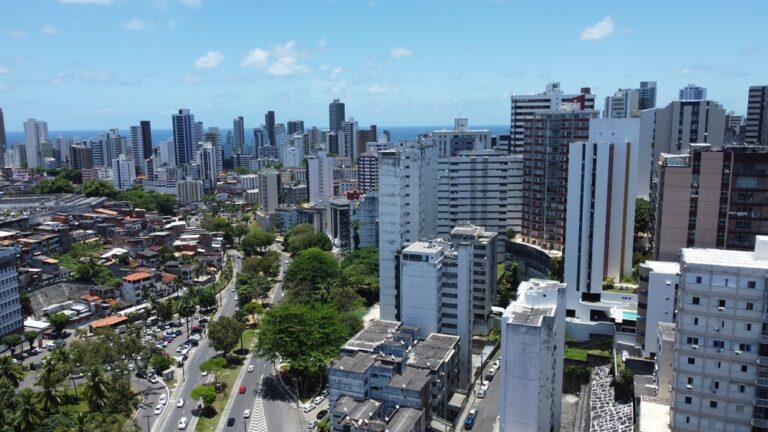Table of Content
ToggleIntroduction
When Brazilians decide to move away from their home country, it is essential to consider the legal and financial implications that are tied to their residency status. Declaring a definitive exit from Brazil is crucial, not only to satisfy the country’s legal requirements but also to manage their taxation and financial obligations effectively. This formal declaration impacts various aspects of life, including taxes, investments, and access to public services, and can prevent potential legal issues related to residency and citizenship obligations.
A definitive exit declaration helps to clarify an individual’s tax residency status, ensuring that they are not subject to Brazilian taxes on worldwide income after emigration. It also simplifies the process of financial planning and investment management, as the tax situation becomes more predictable. Additionally, securing proper visa statuses and meeting housing as well as accommodation requirements can be streamlined when the individual’s departure from Brazil is officially recognized.
Key Takeaways
- Formal exit declarations help prevent legal and tax complications for Brazilians moving abroad.
- A clear tax residency status aids in efficient financial and investment management after leaving Brazil.
- Declaring a definitive exit eases the process of acquiring visas and meeting housing needs in a new country.
Understanding Brazilian Tax Residence
Understanding the nuances of tax residency in Brazil is crucial for individuals planning to move away from the country. It influences their tax liabilities and ensures adherence to tax regulations.
Tax Residency and Non-Resident Status
For tax purposes, Brazil considers an individual a tax resident if they reside in Brazil permanently or on a visa with a non-fixed duration, or if they spend 183 days or more in the country, whether consecutively or non-consecutively, over a period of 12 months. A non-resident is someone who does not meet these criteria or who has filed a declaration of exit, signaling a definitive departure from Brazil.
- Non-residents are taxed only on Brazilian-source income.
- Residents are taxed on their worldwide income, necessitating an awareness of potential double taxation.
Individuals should officially declare their exit to be treated as non-residents for tax purposes, thereby avoiding the obligation to pay Brazilian taxes on worldwide income.
Income Tax Regulations in Brazil
Brazil’s income tax regulations are complex and require thorough comprehension. They are guided by both domestic legislation and international tax treaties to prevent double taxation.
- Income tax rates for residents range from 0% to 27.5%, depending on the income level.
- Non-residents pay a flat rate of 25% on Brazilian-source income.
Tax residents in Brazil are required to file annual tax returns and pay taxes on income earned globally, while non-residents fulfill these obligations only for income originating from Brazilian sources. Transitioning to non-resident status involves not just physical relocation but also the proper legal declarations to Brazilian authorities to avoid continuation of tax liability within Brazil.
Legal Obligations and Departure Communication
When a Brazilian citizen decides to relocate permanently to another country, it is a legal requirement to inform the Brazilian authorities of their departure. This process ensures compliance with Brazilian law and helps in avoiding potential legal and financial consequences.
Communicating Exit to the Brazilian Authorities
Brazilian emigrants are required to notify the Ministry of Labor of their definitive exit. This communication serves as an official record of their departure and has implications for tax and social security duties. Emigrants should submit a declaration to the Federal Revenue Service, indicating their exit. Timely notification is crucial as it affects the individual’s tax residence status and the application of tax regulations pertaining to foreign income.
Penalties for Non-Compliance
Failure to communicate a definitive departure can lead to significant penalties. Individuals who neglect to register their exit with the competent authorities may face a fine. This fine is not a fixed amount and can vary depending on several factors, including the length of time taken to declare the departure and the nature of any income received after leaving Brazil. Non-compliance can also cause complications with future re-entry into Brazil and possible misunderstandings regarding the individual’s legal and tax obligations.
Managing Finances and Investments
When Brazilians decide to move away from Brazil, it’s critical that they handle their financial and investment matters judiciously. A definitive declaration of exit is key to managing tax obligations and optimizing investments. This involves understanding specific banking requirements and CPF regulations, as well as making informed decisions about properties and investments within Brazil.
Banking and CPF Requirements
Banking: Before leaving Brazil, individuals must ensure that their banking affairs are in order, which may include notifying their financial institutions of their departure. Currency exchange and the transfer of the Brazilian Real (BRL) should be managed to avoid exchange rate losses.
CPF (Cadastro de Pessoas Físicas): This is the Brazilian individual taxpayer registry. Those moving abroad should update their CPF status to “non-resident” to avoid complications with financial institutions and investment management within Brazil.
Property and Investment Considerations
Property Management: When it comes to real estate, Brazilians must decide whether to sell, rent, or maintain their properties. Each option has different tax implications and financial responsibilities that need careful assessment.
Investment Management: Investments within Brazil, such as stocks, bonds, or corporate debentures, should be reviewed for compliance with the new residency status. It may be crucial to restructure these investments to align with the individual’s long-term financial strategy in their new country of residence.
Visa and Citizenship
When Brazilians decide to move permanently from Brazil, it is essential to address visa and citizenship matters meticulously to ensure compliance with both Brazilian and destination country regulations. Failure to declare a definitive exit can lead to legal and tax complications.
Types of Visas in Brazil
Brazil offers several types of visas, each appropriate for different situations of temporary stay:
- Vitem I (Diplomatic/Official Visa), issued to foreign officials entering Brazil on duty.
- Vitem II (Business Visa), suitable for short-term business travels, excluding employment.
- Vitem V (Work Visa), granted to individuals employed by a Brazilian company.
- Vitem VII (Permanent Residency), aimed at those looking to settle permanently in Brazil, possibly leading to citizenship.
Visa requirements differ depending on the visa category, with certain visas like the Vitem V necessitating a job offer from a Brazilian employer.
Acquiring Brazilian Citizenship
Citizenship in Brazil can be acquired through various means, including:
- Birth: Individuals born in Brazil, or to a Brazilian parent, may obtain Brazilian citizenship.
- Naturalization: After legally residing in Brazil for an uninterrupted period—typically four years, which may shorten to one year for nationals of Portuguese-speaking countries.
To naturalize, one must demonstrate good standing with justice and knowledge of the Portuguese language. Holding a Brazilian passport is indicative of Brazilian nationality and is required for international travel as a Brazilian citizen.
Housing and Accommodation
When Brazilians move away from Brazil, the choice between renting and buying in key locations becomes a crucial decision directly impacting their long-term financial and personal comfort.
Renting Versus Buying
Renting offers flexibility and less financial burden in the short term, making it a preferred choice for Brazilians pursuing temporary or uncertain stays abroad. They may avoid the commitment and the high upfront costs associated with purchasing property. Moreover, Brazilians can assess the suitability of different localities before making any long-term decisions.
On the other side, buying property could be seen as a stable investment and a sense of permanence. Owning a home provides freedom from rent fluctuations and the potential for property value appreciation over time. However, this requires substantial initial capital and understanding of the local real estate laws and market trends.
Real Estate in Key Locations
São Paulo and Rio de Janeiro are prime spots for housing investments in Brazil. The real estate market in these cities is dynamic, with a wide range of options for different budgets. São Paulo, a bustling business hub, offers modern apartments and luxurious accommodations. Rio de Janeiro attracts with its scenic vistas and vibrant culture, but both cities reflect higher living costs.
Brasília, the capital, with its planned urban design, presents a more orderly real estate market. The city provides various residential options from central apartments to more suburban settings. Here, properties are built with administrative purposes in mind, which can influence their design and accessibility.
Through careful consideration of the pros and cons of renting versus buying, along with the characteristics of real estate in key Brazilian locations, Brazilians can make informed decisions to best accommodate their needs as they declare a definitive exit from their homeland.
Healthcare and Education
When Brazilians move away from Brazil, one of the primary considerations they must address is the transition between Brazilian healthcare and educational systems to those of their new home country. Differences in healthcare quality, costs, and educational curricula can significantly impact families, specifically regarding the continuity of medical care and children’s schooling.
Private Versus Public Healthcare
In Brazil, the public healthcare system is universally accessible to all residents, but it often suffers from long wait times and resource constraints. Brazilians accustomed to public healthcare need to prepare for potential differences in service availability abroad. On the other hand, private healthcare in Brazil may offer quicker access and more upscale facilities compared to public options. However, Brazilians making international moves should research the healthcare system of their destination country to understand if private insurance is necessary or if comparable public services are available.
Educational Institutions for Children
For Brazilian families with children, understanding the nuances of the educational system in a new country is paramount. Brazilian children may face adjustments not only in the language of instruction but also in educational philosophies and curricula. While Brazil’s education system has made significant strides over the years, families moving away may find educational institutions abroad that offer different approaches to learning. It is essential to investigate these institutions thoroughly to ensure a smooth transition for children and to align their education with family aspirations and educational goals.
Cost of Living and Quality of Life
The cost of living in Brazil varies significantly between urban and rural areas; however, many Brazilians are experiencing a high cost of living, especially in big cities. A definitive exit declaration may have financial benefits when considering the economic factors in a new country.
Food and Drink Costs:
- In major cities, dining at a mid-range restaurant can be costly, whereas local markets offer affordable fresh produce.
- Basic grocery items: The cost per month can be lower abroad, depending on the country of residence.
Housing:
- Rent for a one-bedroom apartment in the city center is often high, which impacts overall living expenses.
- Moving abroad could potentially offer more affordable housing options, thus improving quality of life through reduced financial strain.
Healthcare:
- Quality healthcare is often a significant expenditure for Brazilians.
- Countries with universal healthcare systems could provide better services without the high costs associated with private healthcare in Brazil.
Transportation:
- Public transportation expenses can be significant in Brazil’s major cities.
- Many Brazilians find that transportation costs are lower when living in countries with more efficient public transport infrastructure.
When debating whether to leave Brazil, it is important for Brazilians to consider not just the cost of living but also the quality of life offered elsewhere. This includes better economic opportunities, improved social services, and potentially, a healthier work-life balance. Moving to countries with lower living costs and higher life quality can provide long-term financial benefits and a more comfortable lifestyle.
Cultural Integration and Networking
When Brazilians relocate, declaring a definitive exit can facilitate cultural integration and the establishment of a valuable local support network. These steps are essential for adapting to new environments and leveraging the cultural richness of both Brazil and the host country.
Embracing Brazilian Culture
Brazilians carry with them a vibrant culture steeped in traditions that resonate with the values of family, community, and joy. It becomes paramount for Brazilians to embrace and share their native customs, including the Portuguese language and festivities, to enrich the multicultural tapestry of their new homes. By offering a glimpse into Brazil’s cultural heritage, expats foster an appreciation of their roots while adapting to the new surroundings.
Building a Local Support Network
Establishing a local support network is crucial for Brazilian émigrés to navigate cultural differences and secure a sense of community abroad. Engaging with both the expat community and locals can provide practical guidance on matters such as accessing social security benefits. A strong network also contributes to personal and professional development, as connections can lead to opportunities within and outside the Brazilian diaspora.
Integration into a new society goes beyond learning a new culture; it involves a reciprocal sharing of experiences that highlights the cultural richness of the Brazilian background alongside a commitment to becoming part of a new community. The process requires a thoughtful understanding of when to maintain Brazilian traditions and when to embrace new ways of life.
Safety and Security
When Brazilians decide to relocate internationally, declaring a definitive exit from Brazil is a critical step, particularly concerning safety and security. A clear declaration secures their status and ensures protection from legal and fiscal complications that might arise from a dual residency status.
Documentation: They should ensure all necessary documentation is properly submitted to Brazilian authorities. This transparency can prevent identity theft and misuse of information, which are significant concerns affecting the population. It also places them under the protective services of their new country more rapidly.
Property and Finances: Brazilians should manage their assets with clarity to avert potential legal disputes. Untangling their financial affairs within Brazil curtails the risk of fraud and financial uncertainties.
Personal Safety: The decision to leave Brazil should be communicated to ensure one’s safety is not compromised. Brazilians living abroad with unclear residential status may find themselves without the expected protection and securityboth in their new country or if they need to return to Brazil.
Emergency Situations: In times of political turmoil or natural disasters, Brazilians who have declared their exit are more likely to receive assistance from relevant authorities and can access support systems in place for non-resident nationals.
By taking these actions, Brazilian emigrants can better navigate the complex terrain of international relocation, ensuring safety and security for themselves and their assets, thereby mitigating risks associated with living abroad.
Business and Employment
When Brazilians decide to move away from their homeland, understanding the implications for business and employment is critical. This includes grasping the entrepreneurship landscape and assessing the job market for career opportunities that are available both within and outside of Brazil.
Entrepreneurship in Brazil
Brazil presents unique opportunities and challenges for entrepreneurs. On one hand, the Brazilian economy has shown resilience and potential for growth, which can be conducive for starting new ventures. On the other hand, individuals must navigate complex regulations and bureaucratic hurdles. The Ministry of Labor regulates business practices and can be a significant factor in shaping the entrepreneurial landscape.
Job Market and Career Opportunities
The job market in Brazil can be competitive, with varying levels of employment opportunities depending on the sector. It’s important for individuals to thoroughly research and identify where career opportunities are most prevalent. In doing so, they can find sectors within the Brazilian economy that match their skills and experiences. For those considering a move abroad, identifying international career opportunities that can benefit from their Brazilian expertise is also advantageous.
Living in Brazil as a Foreign Resident
When individuals move to Brazil, navigating the legal framework regarding residency and adapting to the new cultural environment are critical steps. Understanding these aspects ensures that foreign residents can live and function effectively within Brazilian society.
Residency Rights and Family Reunification
Foreign nationals living in Brazil have the right to apply for different types of residency, be it temporary or permanent. Permanent residency is often extended to those who have Brazilian family members such as a spouse, partner, or children. Brazil recognizes same-sex marriage, allowing partners in such unions the same legal status for immigration purposes as opposite-sex couples. Family reunification provisions are in place to support the process of bringing close family members, including parents, to live in Brazil, provided certain conditions are met.
Adjusting to Life in South America
Adjusting to life in Brazil involves embracing the local culture and understanding the social norms of South America. This includes learning Portuguese to navigate daily interactions and appreciating the diverse traditions and values. Foreign residents often find that becoming integrated into the community provides a support system for both practical and social aspects of living in Brazil. Additionally, the adjustment process is a key factor in the long-term success and well-being of individuals moving to Brazil. It’s crucial for foreign residents to engage with the local culture and to build relationships with their new neighbors and colleagues.
Frequently Asked Questions
When Brazilians relocate abroad, the declaration of a definitive exit has legal and financial implications that are important to understand. Here are some common questions that elucidate the necessity and process of this declaration.
What legal implications arise for Brazilians not declaring definitive exit when relocating abroad?
Failing to declare a definitive exit can result in legal challenges, such as the continued expectation to fulfill tax obligations as residents, potentially leading to legal penalties and fines.
How does the definitive exit declaration affect tax obligations for Brazilians living overseas?
The declaration alters a person’s status to non-resident, which typically means they are no longer subject to Brazilian income tax on foreign-earned income.
What are the consequences of failing to declare definitive exit for Brazilians on long-term visas in other countries?
Without a definitive exit declaration, Brazilians may be regarded as tax residents in both countries, which could lead to issues of dual taxation.
In what ways does declaring a definitive exit impact the property and assets owned by Brazilians in Brazil?
Declaring a definitive exit impacts the management of assets, as different tax regulations and potential estate planning considerations apply to non-residents.
What processes must Brazilians follow to correctly submit a definitive exit declaration?
Brazilians must file a final tax return and complete the Departure Communication (Comunicação de Saída Definitiva do País), adhering to the deadlines set by the Brazilian Federal Revenue service.
How can declaring a definitive exit benefit Brazilians in terms of financial and immigration status?
A definitive exit declaration can afford Brazilians greater financial flexibility, with potential tax benefits and clarification of their immigration status abroad.












One Response